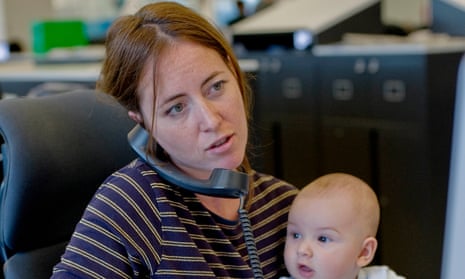Women who work part-time after having children are likely to suffer the extremes of the gender pay gap, according to fresh research showing how working mothers are missing out on pay progression.
By the time a first child has reached the age of 20, mothers earn almost a third less per hour, on average, than similarly educated fathers, according to research from the Institute for Fiscal Studies (IFS) undertaken for the Joseph Rowntree Foundation.
The stark difference in pay according to gender comes as a consequence of the poorer levels of pay progression open to part-time workers – with women making up the vast majority of people taking temporary jobs, as they look to find more flexible working arrangements after having children. As a result, they miss out on earnings growth associated with staying in a permanent job.
There are fears that progress in closing the gender pay gap has stalled, with the latest figures showing that the average female employee currently earns around 9.1% less per hour than the average male employee. While that has come down from about 30% in the early 1990s, the difference remains high.
About a quarter of the wage gap identified by the IFS comes as a result of mothers taking part-time work, while just a tenth of the gap is down to women taking time out of the labour market altogether for a prolonged period of time.
The report also highlights how women’s pay suffers at the hands of a cultural norm among nuclear families whereby women more typically juggle work with looking after children than their male partners. For men, part-time employment rates were essentially unaffected by the arrival of a first child, while women were shown to be significantly more likely than men to still be in part-time jobs when their first child reaches adulthood.
The lack of earnings growth in part-time work has a particularly big impact for graduate women, because they would typically stand to gain the most from rising levels of pay from remaining in full-time paid work. The report found that the wage gap has not fallen at all in the last 25 years for the highest-educated women due to this trend.
The government has set a deadline for businesses with more than 250 staff to report their gender pay gap by 4 April. Some companies have already started reporting, including the BBC, which has faced sharp criticism after high-profile female employees were found to have salaries significantly lower than their male counterparts.
Monica Costa Dias of the IFS said: “It is remarkable that periods spent in part-time work lead to virtually no wage progression at all. It should be a priority for governments and others to understand the reasons for this.”
